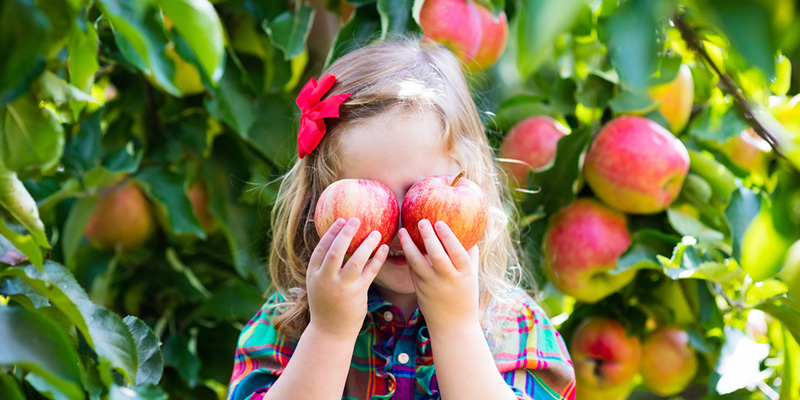Children as young as five enjoy food they perceive to be ‘natural’ more than man-made alternatives, new research has indicated.
Young children were offered pieces of fruit and told one was grown on a farm, one was lab-made, and one was grown on a tree in a lab. The results showed that they preferred the apples they were told were grown on a farm, compared to the lab-produced ones.
Now researchers say that this food bias, which is already well documented in adults, starts early on in childhood and could help further understanding around food preferences.
The team from the University of Edinburgh and Yale University examined the eating preferences of 374 American adults and children.
A group of children aged six to 10 years old and a group of adults were quizzed about which of the three apples they preferred, looking at tastiness, perceived safety and desire to eat.
In another study, four different varieties of orange juice were shown to 85 children aged from five to seven. One had no information and the others each had a different description: squeezed on a farm, chemicals removed, and chemicals added.
Researchers discovered that the detail around how ‘natural’ the juice had an impact on the rating it was given, with participants more likely to opt for the more ‘natural’ option.
The age of the children didn’t appear to have an impact on their choices, leading the researchers to say that perceptions around natural food being better could already be established at age five.
Dr Matti Wilks, from the University of Edinburgh’s School of Philosophy, Psychology and Language Sciences, said: “Overall we provide evidence that, at least in the United States, our tendency to prefer natural food is present in childhood. This research offers a first step towards understanding how these preferences are formed, including whether they are socially learned and what drives our tendency to prefer natural things.”
Read the study in full in the journal Developmental Psychology.





